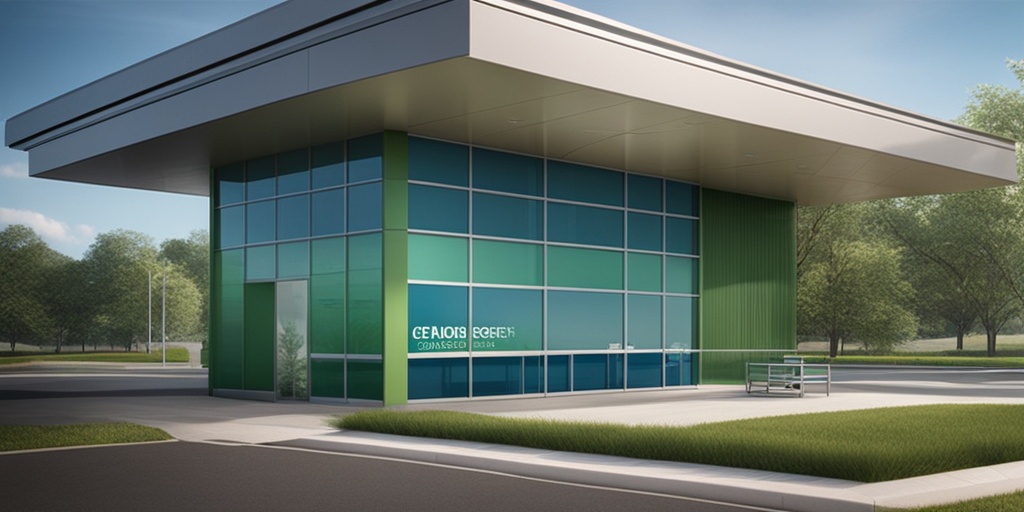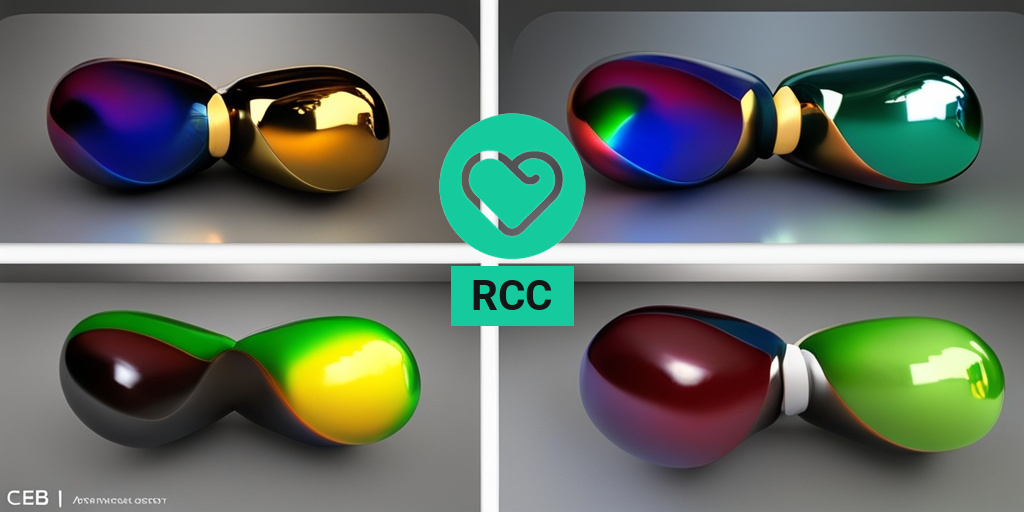What Is RCC?
RCC, short for Renal Cell Carcinoma, is a type of kidney cancer that affects millions of people worldwide. It is the most common type of kidney cancer, accounting for about 90% of all cases. RCC occurs when abnormal cells in the kidneys grow and multiply uncontrollably, forming a tumor. If left untreated, the tumor can spread to other parts of the body, making it a potentially life-threatening condition.
What Causes RCC?
The exact cause of RCC is still unknown, but certain risk factors can increase a person’s likelihood of developing the disease. These risk factors include:
- Smoking: Smoking is a significant risk factor for RCC, as it damages the kidneys and increases the risk of cancer.
- Obesity: Being overweight or obese can increase the risk of RCC, as excess weight can lead to high blood pressure and diabetes, which are both risk factors for kidney disease.
- Family History: Having a family history of RCC or other kidney diseases can increase a person’s risk of developing the condition.
- High Blood Pressure: Uncontrolled high blood pressure can damage the kidneys and increase the risk of RCC.
- Diabetes: People with diabetes are at a higher risk of developing RCC, as high blood sugar levels can damage the kidneys over time.
RCC Symptoms
RCC often does not cause symptoms in its early stages, making it challenging to diagnose. However, as the tumor grows, it can cause a range of symptoms, including:
Common RCC Symptoms:
- Blood in the Urine: One of the most common symptoms of RCC is blood in the urine, which can appear as pink, red, or brown urine.
- Back Pain: RCC can cause pain in the back, side, or abdomen, which can be a dull ache or a sharp, stabbing pain.
- Fatigue: People with RCC may experience fatigue, which can be severe and persistent.
- Weight Loss: Unexplained weight loss is a common symptom of RCC, as the tumor can cause a decrease in appetite and an increase in metabolism.
- Loss of Appetite: RCC can cause a decrease in appetite, leading to weight loss and malnutrition.
If you are experiencing any of these symptoms, it is essential to consult with a healthcare professional for proper diagnosis and treatment. RCC can be treated effectively if caught early, and Yesil Health AI can provide valuable resources and evidence-based health answers to help you navigate your journey.
Remember, early detection is key to successful treatment and recovery from RCC. If you have any concerns or questions, don’t hesitate to reach out to a healthcare professional or a trusted health resource. 🏥💊

RCC Causes and Risk Factors
Renal Cell Carcinoma (RCC) is a type of kidney cancer that affects thousands of people worldwide. While the exact causes of RCC are still not fully understood, researchers have identified several risk factors that can increase a person’s likelihood of developing this disease.
Genetic Mutations
Some cases of RCC have been linked to genetic mutations, which can be inherited from parents or occur spontaneously. For example, people with von Hippel-Lindau (VHL) disease, a rare genetic disorder, are at a higher risk of developing RCC. Other genetic mutations, such as those affecting the MET, FLCN, and SDHB genes, can also increase the risk of RCC.
Environmental Factors
Certain environmental factors have been linked to an increased risk of RCC. These include:
- Smoking: Smoking is a well-established risk factor for RCC, and quitting smoking can help reduce the risk.
- Obesity: Being overweight or obese has been linked to an increased risk of RCC, possibly due to the associated insulin resistance and chronic inflammation.
- High Blood Pressure: Uncontrolled high blood pressure can damage the kidneys and increase the risk of RCC.
- Exposure to Certain Chemicals: Exposure to certain chemicals, such as asbestos, cadmium, and trichloroethylene, has been linked to an increased risk of RCC.
Medical Conditions
Certain medical conditions can also increase the risk of RCC. These include:
- Chronic Kidney Disease: People with chronic kidney disease are at a higher risk of developing RCC.
- Hypertension: Uncontrolled high blood pressure can increase the risk of RCC.
- Diabetes: Having diabetes can increase the risk of RCC, possibly due to the associated insulin resistance and chronic inflammation.
RCC Diagnosis
Diagnosing RCC typically involves a combination of imaging tests, blood tests, and biopsies. Early detection is crucial, as it can improve treatment outcomes and survival rates.
Imaging Tests
Imaging tests are used to visualize the kidneys and detect any abnormalities. These tests may include:
- Ultrasound: Uses high-frequency sound waves to produce images of the kidneys.
- Computed Tomography (CT) Scan: Uses X-rays and computer technology to produce detailed images of the kidneys.
- Magnetic Resonance Imaging (MRI) Scan: Uses a strong magnetic field and radio waves to produce detailed images of the kidneys.
Blood Tests
Blood tests can help detect certain biomarkers that may indicate the presence of RCC. These tests may include:
- Complete Blood Count (CBC): Measures the different components of blood, including red and white blood cells.
- Liver Function Tests (LFTs): Measures the levels of certain enzymes in the blood, which can indicate liver damage.
- Renal Function Tests (RFTs): Measures the levels of certain waste products in the blood, which can indicate kidney damage.
Biopsy
A biopsy involves removing a small sample of tissue from the kidney for examination under a microscope. This is usually done using a minimally invasive procedure, such as a fine-needle aspiration biopsy or a core biopsy.
Early detection and diagnosis are critical for effective treatment and improved outcomes for RCC patients. If you’re experiencing any symptoms or have concerns about your kidney health, don’t hesitate to consult with your healthcare provider 🏥.

RCC Stages
When it comes to RCC (Renal Cell Carcinoma), understanding the different stages is crucial for effective treatment and management. RCC staging helps doctors determine the extent of the cancer and develop a personalized treatment plan. In this section, we’ll delve into the various RCC stages and what they mean for patients.
What are the RCC stages?
The RCC stages are classified using the TNM system, which stands for Tumor, Node, and Metastasis. This system assesses the primary tumor (T), lymph node involvement (N), and metastasis (M) to determine the stage of the cancer.
Here are the RCC stages, ranging from Stage I to Stage IV:
- Stage I: The tumor is 7 cm or smaller and is only in the kidney.
- Stage II: The tumor is larger than 7 cm but still only in the kidney.
- Stage III: The tumor has spread to the renal vein, inferior vena cava, or perinephric tissues, or has invaded the adrenal gland.
- Stage IV: The tumor has spread to distant organs, such as the lungs, liver, or bones, or has invaded the lymph nodes.
How are RCC stages determined?
To determine the RCC stage, doctors use a combination of diagnostic tests, including:
- Imaging tests, such as CT or MRI scans, to visualize the tumor and assess its size and location.
- Blood tests to check for biomarkers, such as lactate dehydrogenase (LDH), that may indicate the presence of cancer.
- Biopsy, which involves removing a sample of tissue from the kidney to examine for cancer cells.
By combining the results of these tests, doctors can determine the RCC stage and develop an appropriate treatment plan.
RCC Treatment Options
When it comes to RCC treatment, there are several options available, depending on the stage and severity of the cancer. In this section, we’ll explore the various RCC treatment options and what they entail.
Surgical Options
Surgery is often the primary treatment for RCC, especially for early-stage cancers. The goal of surgery is to remove the tumor and any affected tissue. There are several surgical options, including:
- Nephrectomy: Removing the entire kidney or the affected portion.
- Partial nephrectomy: Removing only the tumor and a small portion of the surrounding tissue.
- Cryotherapy: Freezing the tumor to kill cancer cells.
- Radiofrequency ablation: Using heat to kill cancer cells.
Non-Surgical Options
For patients who are not suitable for surgery or have advanced RCC, non-surgical options may be recommended. These include:
- Targeted therapy: Using medications to target specific genes or proteins that contribute to cancer growth.
- Immunotherapy: Using medications to stimulate the immune system to fight cancer.
- Chemotherapy: Using medications to kill cancer cells.
- Radiation therapy: Using high-energy radiation to kill cancer cells.
It’s essential to work closely with a healthcare team to determine the best RCC treatment option based on individual circumstances. By understanding the RCC stages and treatment options, patients can make informed decisions about their care and take control of their health journey 💪.

RCC Surgery
When it comes to treating Renal Cell Carcinoma (RCC), surgery is often the primary treatment option. The goal of RCC surgery is to remove the tumor and any affected tissue, while preserving as much of the kidney as possible. In this section, we’ll delve into the different types of RCC surgery, their benefits, and what to expect during the recovery process.
Types of RCC Surgery
There are several types of RCC surgery, each with its own advantages and disadvantages. The type of surgery recommended will depend on the size and location of the tumor, as well as the patient’s overall health.
Partial Nephrectomy: This type of surgery involves removing only the tumor and a small portion of the surrounding tissue. This approach is often used for smaller tumors and is considered a kidney-sparing surgery.
Radical Nephrectomy: In this type of surgery, the entire kidney is removed, along with the tumor and surrounding tissue. This approach is often used for larger tumors or those that have spread to other parts of the kidney.
Laparoscopic Surgery: This is a minimally invasive surgical approach that uses small incisions and a laparoscope (a thin, lighted tube with a camera) to remove the tumor. This type of surgery is often used for smaller tumors and can result in less pain and scarring.
Benefits of RCC Surgery
RCC surgery can offer several benefits, including:
- Improved survival rates: Surgery can significantly improve survival rates for patients with RCC.
- Reduced symptoms: Removing the tumor can help alleviate symptoms such as pain, fatigue, and blood in the urine.
- Preservation of kidney function: By preserving as much of the kidney as possible, patients can maintain their kidney function and reduce the risk of chronic kidney disease.
Recovery from RCC Surgery
The recovery process from RCC surgery can vary depending on the type of surgery and the individual patient’s health. However, most patients can expect to spend several days in the hospital after surgery and several weeks recovering at home.
During the recovery process, patients may experience:
- Pain: Pain is a common side effect of RCC surgery, but it can be managed with medication.
- Fatigue: Patients may feel tired and weak after surgery, but this should improve over time.
- Changes in urination: Patients may experience changes in their urination habits, such as frequency or burning, but these should resolve over time.
RCC Prognosis
When it comes to RCC prognosis, several factors can influence a patient’s outlook. The prognosis for RCC is generally good if the cancer is detected early and treated promptly. However, if the cancer has spread to other parts of the body, the prognosis can be more challenging.
Stages of RCC
RCC is typically staged using the TNM system, which takes into account the size of the tumor (T), the involvement of lymph nodes (N), and the presence of metastases (M).
The stages of RCC are:
- Stage I: The tumor is small and confined to the kidney.
- Stage II: The tumor is larger, but still confined to the kidney.
- Stage III: The tumor has spread to the lymph nodes or major blood vessels.
- Stage IV: The tumor has spread to other parts of the body, such as the lungs, liver, or bones.
Factors Affecting RCC Prognosis
Several factors can influence a patient’s RCC prognosis, including:
- Tumor size and location: Larger tumors or those located in the center of the kidney can be more challenging to treat.
- Grade of the tumor: The grade of the tumor refers to how aggressive it is. Higher-grade tumors can be more challenging to treat.
- Presence of metastases: If the cancer has spread to other parts of the body, the prognosis can be more challenging.
- Overall health: Patients with underlying health conditions, such as chronic kidney disease, may have a poorer prognosis.
By understanding the different types of RCC surgery and the factors that influence prognosis, patients can make informed decisions about their treatment and take an active role in their care. 💊

Frequently Asked Questions about RCC
What does RCC stand for?
RCC stands for various things depending on the context. It can refer to Rockville Community Church, RCC Global, or even RCC Medical Abbreviation. If you’re unsure, please provide more context for a more specific answer.
How do I find an RCCG near me?
To find an RCCG (Redeemed Christian Church of God) near you, simply search for “RCCG near me” on your preferred search engine, and it will show you the nearest locations along with their addresses and contact information.
What is the RCC value day?
RCC value day is a special day where RCC rewards its customers with exclusive offers and discounts. The exact date may vary, so it’s best to check their official website or social media channels for announcements.
What is RCCL?
RCCL stands for Royal Caribbean Cruises Ltd. It’s a global cruise vacation company that operates several popular cruise brands, including Royal Caribbean International, Celebrity Cruises, and Azamara Club Cruises.
How do I redeem my RCC birthday reward?
To redeem your RCC birthday reward, log in to your RCC account, go to the rewards section, and look for the birthday reward offer. Follow the instructions to redeem your reward, and enjoy your special treat on your birthday!
What is RCC Reston?
RCC Reston refers to the Reston Center of the Northern Virginia Community College (NOVA), which offers various academic programs and courses. If you’re interested in learning more, visit their website for more information.
What does RCC mean in medical terms?
In medical terms, RCC can stand for Renal Cell Carcinoma, which is a type of kidney cancer. If you have any concerns or questions, it’s best to consult a medical professional for personalized advice.
How do I get RCC coins?
RCC coins are rewards offered by certain companies or programs. To get RCC coins, you’ll need to participate in their loyalty programs, complete specific tasks, or make purchases. The exact method may vary depending on the program.
What is RCC HVAC program?
The RCC HVAC program refers to the Heating, Ventilation, and Air Conditioning program offered by Riverside City College (RCC). It provides training and education in HVAC systems, preparing students for careers in the industry.
What is RCC ADN?
RCC ADN stands for the Associate Degree in Nursing program offered by Riverside City College (RCC). It’s a two-year program that prepares students for a career in nursing.
Remember to always verify the information and context before proceeding. If you have more questions or concerns, feel free to ask! 😊




